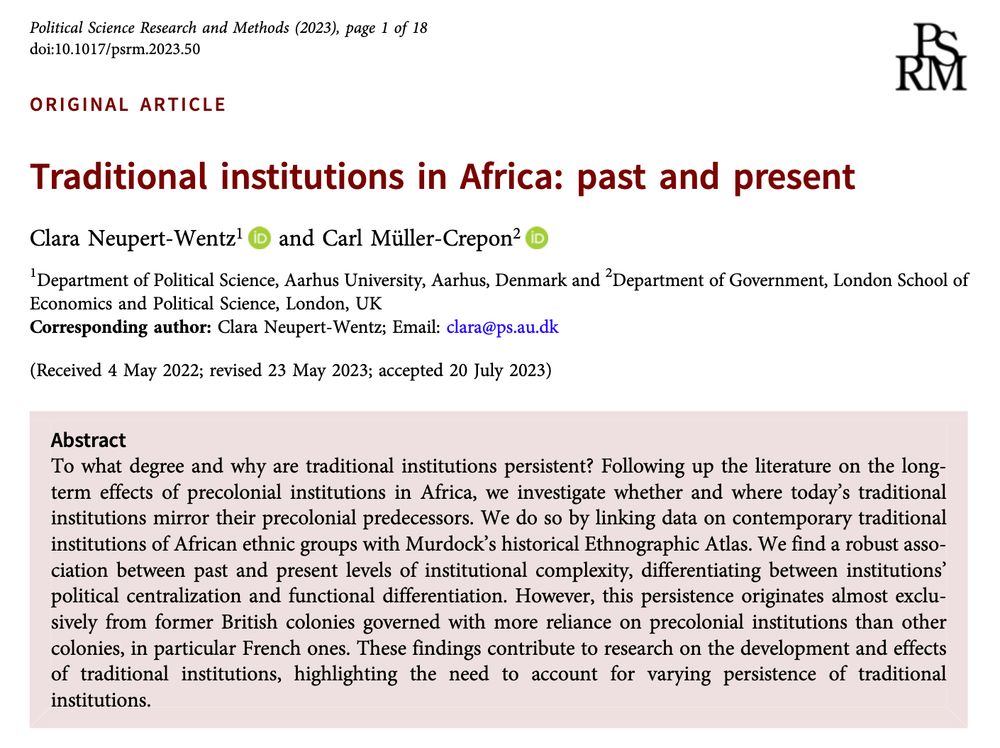Clara Neupert-Wentz
@claranw.bsky.social
270 followers
110 following
13 posts
PoliSci research on the conflict, institutions, and gender. Assistant Professor @ Aarhus University's Department of Political Science. PhD @ University of Konstanz. She/her.
Posts
Media
Videos
Starter Packs
Reposted by Clara Neupert-Wentz
Clara Neupert-Wentz
@claranw.bsky.social
· Apr 24
Clara Neupert-Wentz
@claranw.bsky.social
· Nov 16
Clara Neupert-Wentz
@claranw.bsky.social
· Nov 16
Clara Neupert-Wentz
@claranw.bsky.social
· Nov 16
Clara Neupert-Wentz
@claranw.bsky.social
· Nov 14
Clara Neupert-Wentz
@claranw.bsky.social
· Nov 14
Clara Neupert-Wentz
@claranw.bsky.social
· Nov 14
Clara Neupert-Wentz
@claranw.bsky.social
· Nov 14
Clara Neupert-Wentz
@claranw.bsky.social
· Nov 14
Clara Neupert-Wentz
@claranw.bsky.social
· Nov 10






